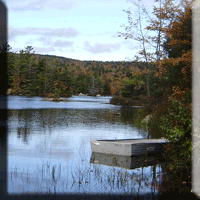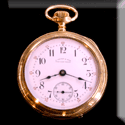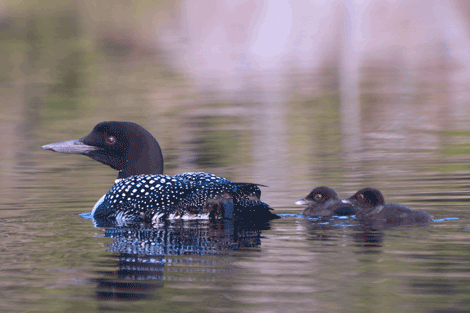 .
Our Loons
.
Our Loons|
|
Loon Preservation CommitteeThe Loon Preservation Committee (LPC) was created in 1975 in response to concerns about a dramatically declining loon population and the effects of human activities on loons. LPC’s mission is to restore and maintain a healthy population of loons throughout New Hampshire; to monitor the health and productivity of loon populations as sentinels of environmental quality; and to promote a greater understanding of loons and the larger natural world Learn more at : www.loon.org
Give the loons some space!Appreciate loons from a safe distance with a good pair of binoculars. Give nesting and brooding loons a wide berth, at least 50-100 yards. Loons flushed from the nest may abandon their eggs. After lead sinker poisonings, boat collisions are the highest known cause of loon deaths in New Hampshire. Loon chicks are especially vulnerable to boat collisions, and may be exposed to predators if they become separated from their parents. Get the lead out!Use non-lead fishing sinkers and jigs, and retrieve broken fishing line. Fishing line entanglement and lead poisoning from sinkers are leading causes of mortality for New Hampshire loons. Read the signs!Learn to read the signs
of loon behavior. Foraging loons will communicate alarm by squaring
their brow and sinking lower in the water-signs that the observer
should quickly back away. An agitated nesting loon will lower its
head over the edge of its nest, ready to flee. If you see this,
move away-you're much too close! |
Loons on Long Pond
All Recordings Courtesy of Lang Elliott Nature Sound Studios.
Do you have some great photos of our loons? Attach them to an email
and send them
Effects of Lead Fishing TackleLoon CalendarJourney of the Common LoonLoon Facts
|
||||





